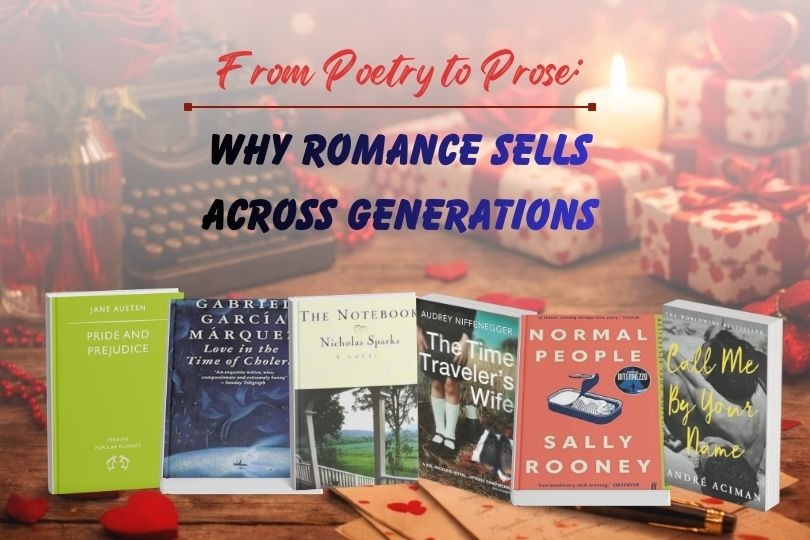‘Fifty Shades of Grey,’ 10 years later: What it tells us about self-publishing as a strategy
‘Fifty Shades of Grey,’ 10 years later: What it tells us about self-publishing as a strategyon Sep 09, 2021

The role of Gatekeepers has shifted
This is an interesting time in publishing and other areas of the cultural industries because the roles of gatekeepers are changing. Today, it is much easier to appeal to a niche audience than it was 10 years ago. Self-publishing is here to stay. Some people commend self-publishing as a great way to ensure that audiences can access a diversity of genres and voices that have traditionally been marginalized by mainstream publishers. Others condemn it because of the lack of gatekeepers to assess the content being produced. A few consider it a get-rich-quick-scheme. However, these assumptions are based on limited knowledge of contemporary self-publishing practices.Self-publishing isn’t new
The phenomenon of self-publishing is often linked to online book production methods, which allow authors to produce an ebook with a few strokes of the keyboard, making their work available to a global audience. However, there is a much richer history of self-publishing that goes further back than its digital counterpart. A number of prominent authors started off by privately printing their work. For instance, Jane Austen privately published Sense and Sensibility in 1811, and Mark Twain self-published The Adventures of Huckleberry Finn in 1885. Although self-publishing might appear as the new buzzword, it is not a novel phenomenon in the publishing industry. Even though self-publishing was a practice some authors adopted in the 18th and 19th centuries, the distribution methods and the number of copies were often limited.Amazon & self-publishing
In the past 10 years, the phenomenon of self-publishing grew massively with the help of Amazon, Wattpad and other online publishing tools. The real game-changer to self-publishing was Amazon when it introduced Kindle Direct Publishing in 2007. It became possible for authors to share their work worldwide through a convenient global distributor. Amazon can be linked to the popularisation of electronic books (ebooks) through its promotion of the Kindle – also introduced in 2007 – which prices literary works as low as 99 cents. In 2012, a year after its publication, Fifty Shades of Grey was the best- and fastest-selling series ever on Kindle.Self-publishing on the rise
It is difficult to trace the actual number of self-published books because platforms like Amazon assign their own classification, making the ISBN unnecessary. However, Bowker, a company that assesses and reports bibliographical information (such as ISBN data), provides reports showing that self-publishing has been on the rise. In 2011, the company registered 148,424 printed self-published books with an additional 87,201 ebooks. Only six years later, in 2017, the registered number of self-published books was more than a million. The numbers kept rising the following year, with over 1.5 million self-published books registered in Bowker’s system. In the past 10 plus years, self-publishing has kept growing as an industry potentially due to ebook adoption and online publishing companies, which indicates that it certainly has the possibility to have a permanent place in the publishing ecosystem.Wattpad: a virtual library of the future?
In 2006, Kevin Kelly, former editor of Wired magazine, proposed the idea of “liquid books” all housed in a universal library, which anyone could access freely. A year after Kelly’s proposal, a platform emerged that made the idea of a universal library a viable possibility. Wattpad was originally a start-up founded in Canada by Allen Lau and Ivan Yuen in 2007. Originally a website, the company launched a mobile app in 2008, which is now easily accessed from any hand-held device. At first, the founders of the site uploaded books in the public domain to attract users. Once enough people became aware of Wattpad, writers started to upload their own stories to share with an online audience. Now Wattpad has a range of categories of books and stories for all types of readers, ranging from traditional romance and mystery to spiritual genres and the paranormal. A virtual library of user-generated content, both mainstream and niche, emerged that supported the self-publishing boom. Wattpad takes pride in the fact that it presents its authors with opportunities to obtain worldwide recognition by working with global media companies. For instance, the self-published novel The Kissing Booth became a Netflix original movie after it found success and a loyal audience on Wattpad. Hence, Wattpad became a place for traditional industries to browse for new content. Arguably, this signals that self-publishing isn’t going anywhere and that traditional media companies are quick to take advantage of this new model of production. After more than 10 years in the industry, Wattpad has developed ties to traditional media outlets that can potentially only get stronger.What’s next?
Self-publishing could be a solution to a number of problems authors face – from trying to reach a niche market to producing controversial content, as was the case with the work of EL James. Something else to keep in mind when evaluating the usefulness of self-publishing is the possibility of producing and purchasing books and ebooks from home during a pandemic. Could the pandemic contribute to a shift that potentially makes self-publishing accepted as a viable and legitimate form of book production? Maybe we’ll get an answer in another 10 years. Source: Scroll.in
EL James
Fifty Shades Trilogy
Frontlist
Frontlist India
Frontlist Latest news
Frontlist latest updates
News
Publishers
Publishing
Self Published Books
Self Publishing industry
Wattpad

.jpg)
.jpg)
.jpg)
.jpg)
.jpg)

.jpg)
.jpg)
.jpg)
.jpg)
.jpg)


.jpg)

.jpg)










Sorry! No comment found for this post.